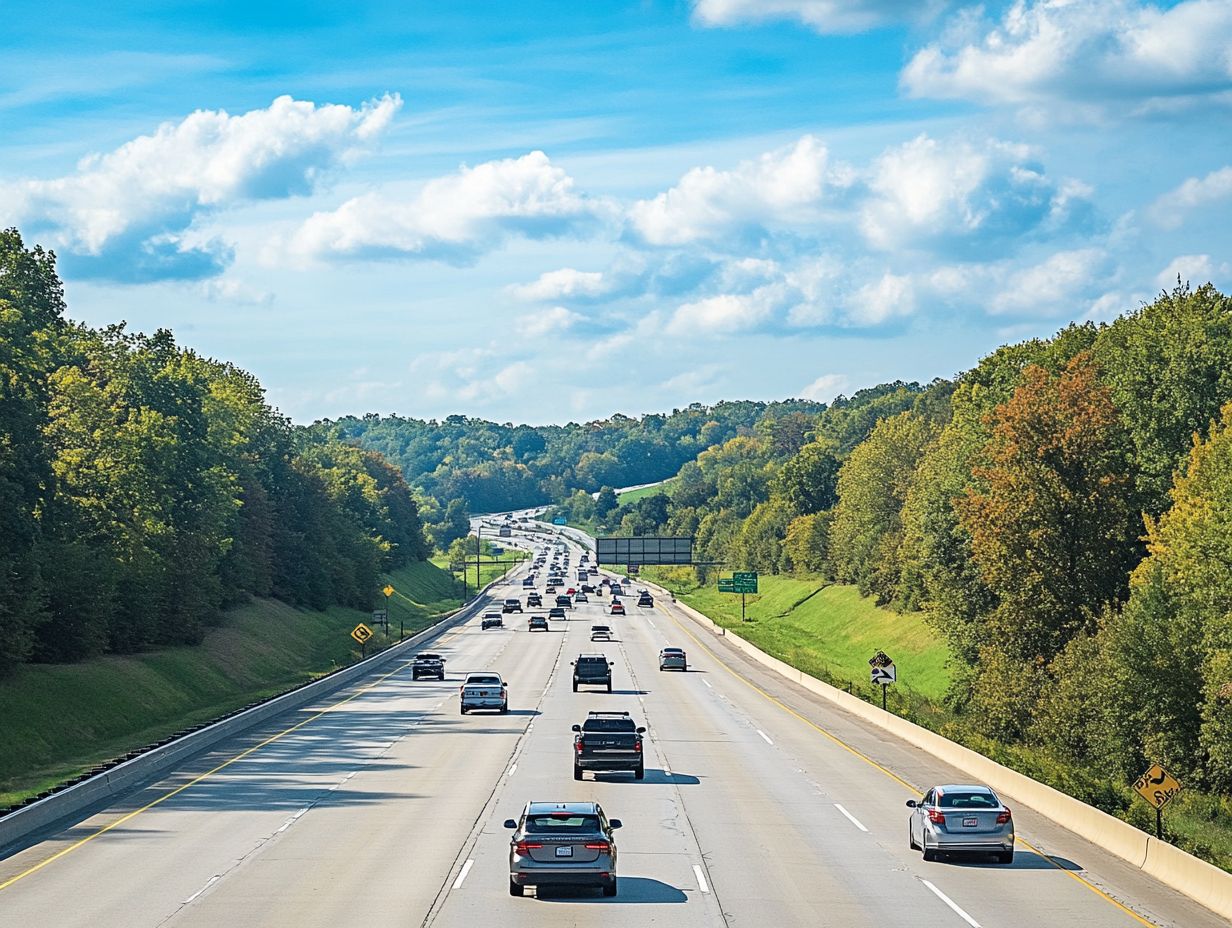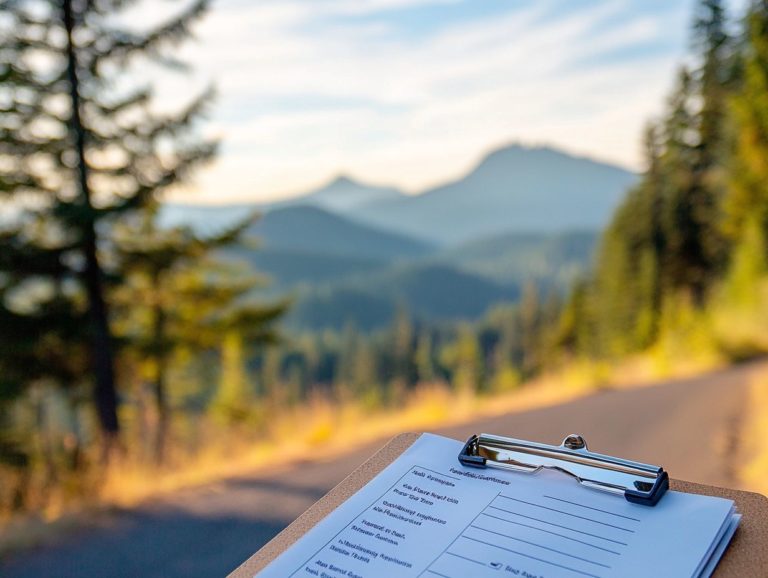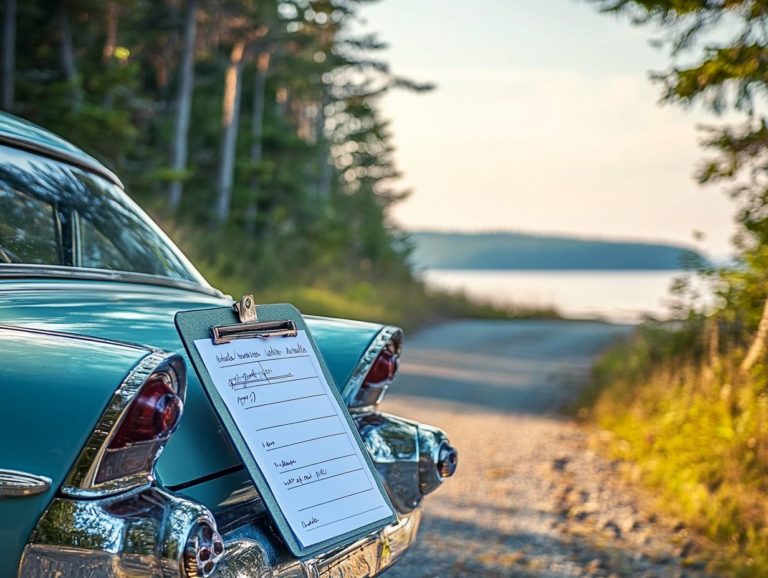Auto Insurance in Indiana: A Quick Overview
Navigating auto insurance can be tricky, but it doesn’t have to be! With numerous requirements and coverage options available, understanding the basics of auto insurance is essential for every driver in Indiana.
This article highlights the minimum auto insurance requirements, types of coverage like liability, collision, and comprehensive insurance, and the factors that influence insurance rates.
You ll find valuable tips for getting the best coverage and uncovering potential discounts. Equip yourself with knowledge that not only saves you money but also ensures you have adequate protection on the road.
Contents
- Key Takeaways:
- Minimum Auto Insurance Requirements in Indiana
- Types of Auto Insurance Coverage
- Factors Affecting Auto Insurance Rates in Indiana
- Finding the Best Auto Insurance in Indiana
- Frequently Asked Questions
- What is auto insurance in Indiana?
- Is auto insurance mandatory in Indiana?
- Is auto insurance mandatory in Indiana?
- What does liability coverage mean?
- What other types of coverage are available in Indiana?
- What are the minimum coverage requirements in Indiana?
- What factors affect auto insurance costs in Indiana?
Key Takeaways:
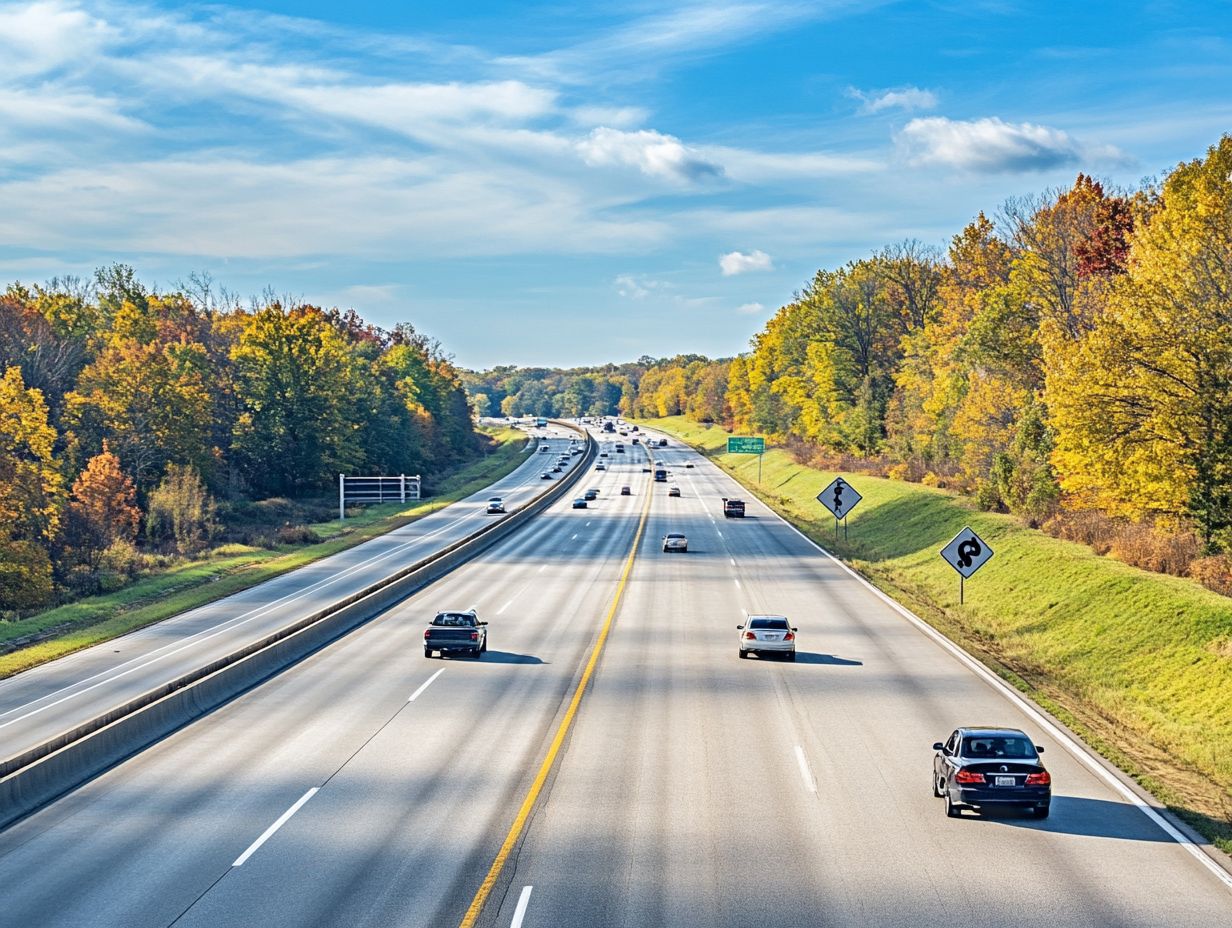
- Indiana requires all drivers to have auto insurance that meets the state’s minimum coverage requirements, including liability, collision, and comprehensive insurance.
- Factors such as age, driving record, and vehicle type can affect auto insurance rates in Indiana. Maintaining a good driving record and choosing a vehicle with safety features can help lower premiums.
- When shopping for auto insurance in Indiana, be sure to compare quotes from different providers and ask about available discounts. This can help you find the best coverage at an affordable price.
What is Auto Insurance?
Auto insurance stands as a crucial financial shield, safeguarding you, your vehicle, and your finances from unexpected burdens that accidents and damages can impose. Often mandated by law and varying by state, these policies cover a broad range of incidents, including bodily injury liability, property damage liability, and even theft.
Understanding the different types of coverage available is essential for choosing the right insurance plan that aligns with your individual needs and complies with local regulations.
However, auto insurance isn t just about meeting legal requirements; comprehensive coverage can provide invaluable peace of mind by addressing risks like natural disasters or vandalism.
Collision coverage protects you from the financial fallout of accidents, regardless of fault, while liability coverage ensures you re responsible for costs incurred by others involved in any mishap.
Insurance agents help you navigate your options, tailoring policies to fit your lifestyle and circumstances. By evaluating your unique needs and potential risks, these professionals ensure that you re well-protected, offering support for claims and policy adjustments.
Minimum Auto Insurance Requirements in Indiana
In Indiana, minimum auto insurance requirements are set to guarantee that all drivers uphold a fundamental level of financial responsibility in the event of an accident.
As outlined by the Indiana Department of Insurance, you must secure proof of insurance to show that you have the required coverage, which includes bodily injury liability and property damage liability.
Acquiring Indiana auto insurance is not just about following state laws; it s also essential for protecting your personal interests and those of other drivers on the road.
State Mandated Coverage
State-mandated coverage in Indiana requires you to carry specific types of insurance, ensuring that you are financially liable for any damages from accidents. Indiana law clearly states that you must have bodily injury liability coverage to protect against claims from injured parties, as well as property damage liability to cover damages inflicted on another person’s vehicle or property.
Understanding these requirements is crucial to avoid penalties and remain compliant with state regulations.
Specifically, the state mandates a minimum of $25,000 for bodily injury per person, up to $50,000 for all individuals involved in a single accident, and at least $25,000 for property damage.
These coverage types act as a safety net, protecting you from costly legal claims and medical expenses that can arise from motor vehicle accidents. Without adequate insurance, the financial repercussions of an accident can be severe, potentially leading to significant out-of-pocket costs, loss of assets, or even bankruptcy.
Therefore, it s vital for you to not only understand the minimum legal requirements but also to consider higher coverage limits for greater peace of mind.
Get your auto insurance today to drive with peace of mind!
Types of Auto Insurance Coverage
Explore various auto insurance options designed to meet your unique needs and circumstances.
Liability coverage protects you against claims for bodily injury and property damage you cause in accidents. It comes in two main parts: bodily injury liability, which covers medical expenses and lost wages for those you injure, and property damage liability, which handles the costs associated with damage to someone else s vehicle or property.
Having this coverage safeguards you against potentially devastating financial repercussions if you’re found responsible for an accident. Without sufficient liability insurance, you could face overwhelming medical bills or repair costs that far exceed your personal assets, resulting in significant financial strain.
Typical limits for liability coverage can vary widely but generally start at $25,000 for bodily injury per person and can reach up to $50,000 per accident. Assess your needs carefully and choose limits that provide a solid safety net for unforeseen events.
Collision Coverage

Collision coverage helps you pay for damages to your vehicle from a crash with another vehicle or object, regardless of who s at fault. It s especially useful when you need to repair or replace your car after an accident, as it covers repair costs minus the deductible amount specified in your policy. The deductible is the amount you pay out of pocket before your insurance kicks in.
Unlike liability or comprehensive coverage, which address damages caused by third parties or accidents that don’t involve a crash, collision coverage focuses on the loss you experience during a crash. This becomes particularly advantageous when your vehicle sustains serious damage, as the payout can significantly alleviate repair costs, assuming the deductible is manageable.
Deductibles for collision coverage can range from a few hundred to a thousand dollars, impacting the final claim amount. Therefore, when assessing your auto insurance plan, it s essential to weigh the importance of collision coverage. It not only provides peace of mind but also plays a vital role in safeguarding your financial interests in the event of an accident.
Comprehensive Coverage
Comprehensive coverage protects you from a wide range of incidents, like theft, vandalism, natural disasters, and damage from animals. Think of it as your safety net against unexpected events that could lead to significant financial setbacks. By understanding the full scope of comprehensive coverage, you can make informed choices about your insurance policy.
Imagine an unexpected hailstorm wreaking havoc on your parked car or a sudden encounter with a deer resulting in costly repairs. Comprehensive coverage works seamlessly alongside liability and collision insurance, creating a well-rounded protection strategy that ensures both accidents and non-accidental damages are accounted for.
Keep in mind that certain limitations or exclusions may apply, such as wear and tear or mechanical failures, which typically don’t fall under this coverage. Thus, incorporating comprehensive coverage into your full auto insurance plan is imperative for robust defense against potential risks, safeguarding both your vehicle and your peace of mind.
Take charge of your auto insurance today and ensure you re fully protected!
Factors Affecting Auto Insurance Rates in Indiana
Several factors play a significant role in shaping auto insurance rates in Indiana, such as your age, driving record, and the type of vehicle you own. Insurance companies carefully consider these elements when determining your premiums.
If you re a younger driver, you might notice higher rates due to the perceived risk associated with less experience on the road. Conversely, maintaining a clean driving record can unlock discounts and result in lower auto insurance rates.
Furthermore, the specific make and model of your vehicle are equally important, as some cars may incur higher repair or replacement costs in the unfortunate event of an accident.
Age, Driving Record, and Vehicle Type
Age, driving record, and vehicle type are crucial factors influencing your auto insurance rates in Indiana. Younger drivers, especially those under 25, often face higher premiums due to less experience and a higher likelihood of accidents.
On the other hand, if you have a clean driving record, you ll likely qualify for lower rates. The type of vehicle you drive also plays a significant role; fast or expensive cars may come with heftier premiums because of their increased repair costs.
These factors interplay in ways that can either elevate or decrease your insurance costs. For example, if you re a young driver who opts for a budget-friendly, safe vehicle and keeps a spotless driving record, you might find your premiums more manageable. Similarly, seasoned drivers are often rewarded for their experience with better rates, especially when they choose practical vehicles over flashy ones.
To enhance your chances of securing affordable insurance, consider these strategies:
- Enroll in regular defensive driving courses
- Opt for sedans or SUVs known for their safety ratings
Routine vehicle maintenance can also lead to fewer claims, positively impacting your future premiums.
Finding the Best Auto Insurance in Indiana
Finding the best auto insurance in Indiana can be exciting! Consider key factors like coverage options, premium rates, and the standing of various insurance companies.
Engaging in comparison shopping is crucial for uncovering providers with competitive rates, particularly when you’re on the lookout for discounts related to safe driving, bundling policies, or membership in specific organizations.
By clearly understanding your unique needs, you can more effectively identify the insurance plan that suits you best.
Comparison Shopping and Discounts
Comparison shopping is an essential strategy if you’re aiming to secure the best auto insurance policy at the most competitive rates in Indiana. By evaluating quotes from various insurance companies, you can unearth potential savings and take advantage of discounts that could significantly lower your premiums.
These discounts might be available for a range of reasons, such as maintaining a safe driving record, bundling multiple policies, or opting for specific payment methods.
As you embark on the comparison process, don t forget to consider customer service ratings; after all, these can greatly influence your future interactions with the insurance provider. It s also crucial to evaluate coverage limits to ensure the policies you choose align perfectly with your personal needs, leaving no gaps.
Don’t overlook the financial strength of insurance companies. This ensures they can pay claims when needed. Engaging with an insurance agent can offer you valuable insights, guiding you through the complexities of options while maximizing discounts with strategies tailored specifically to your circumstances.
Frequently Asked Questions
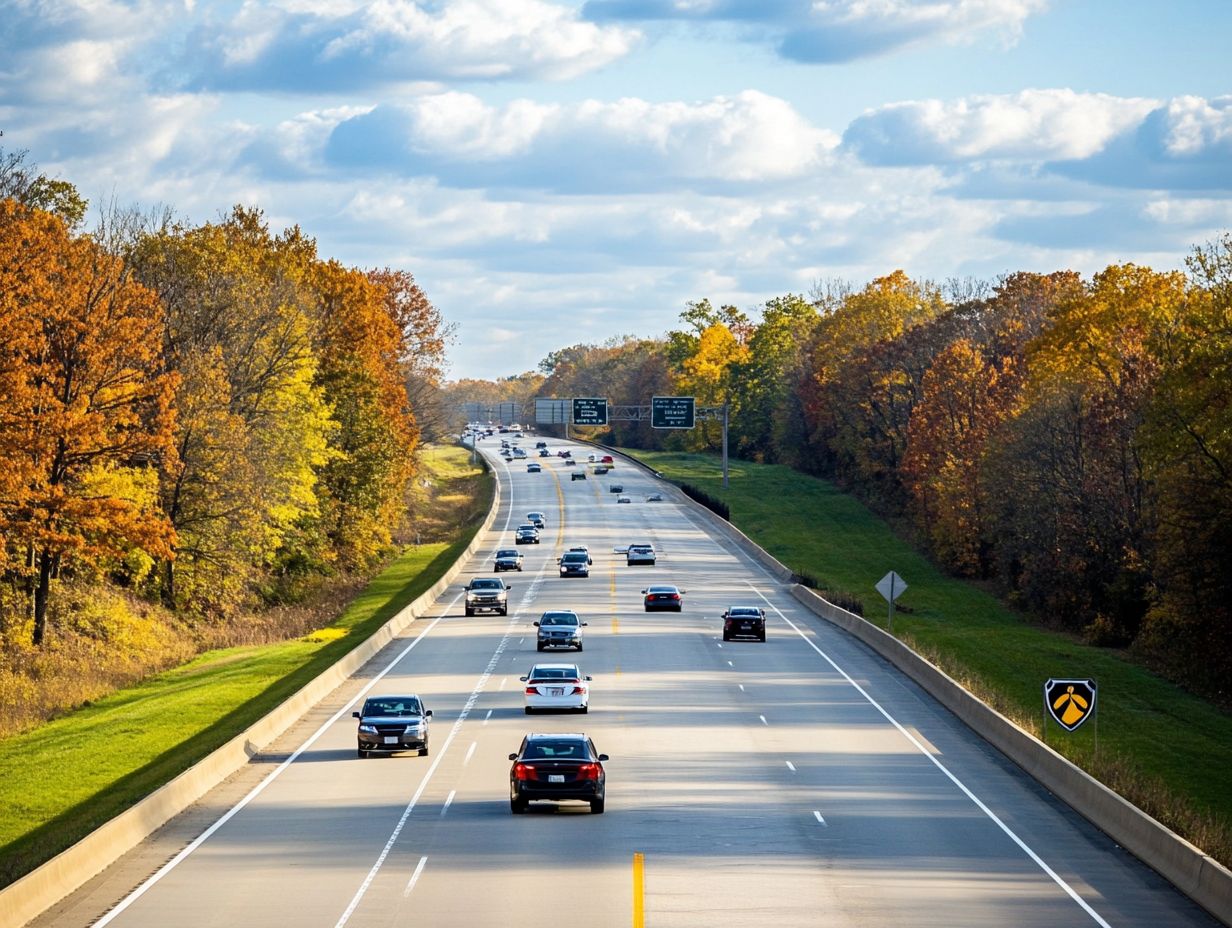
What is auto insurance in Indiana?
Auto insurance in Indiana is a type of insurance that provides financial protection for drivers in the state. It covers damages and losses to a vehicle in the event of an accident, as well as any injuries or property damage caused to others.
Is auto insurance mandatory in Indiana?
Yes, auto insurance is mandatory in Indiana. Drivers are required to have minimum coverage to protect themselves and others on the road.
Start comparing quotes today to secure the best rates and coverage for your needs!
Is auto insurance mandatory in Indiana?
Yes, auto insurance is mandatory in Indiana. All drivers must have at least liability coverage to legally operate a vehicle.
What does liability coverage mean?
Liability coverage is insurance for damages and injuries caused to others when the insured driver is at fault. This coverage does not pay for damages to the driver s own vehicle.
What other types of coverage are available in Indiana?
Drivers in Indiana can also choose collision coverage, which pays for damages to their own vehicle in an accident. Comprehensive coverage protects against non-collision events like theft or natural disasters.
What are the minimum coverage requirements in Indiana?
Indiana mandates minimum liability insurance of $25,000 for bodily injury per person, $50,000 per accident, and $25,000 for property damage.
What factors affect auto insurance costs in Indiana?
The cost of auto insurance varies based on age, driving record, vehicle type, and location. Coverage level and available discounts also play a role.
